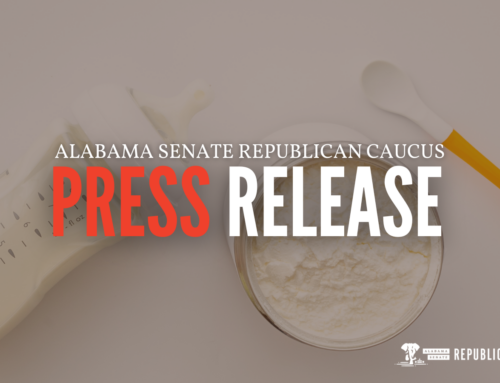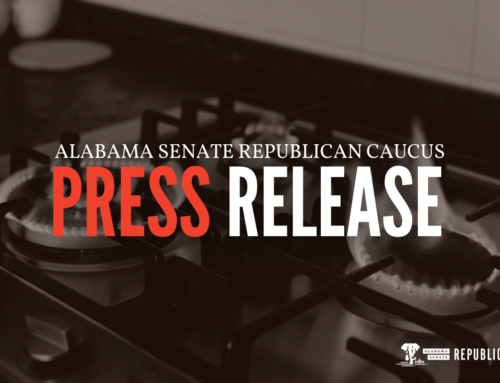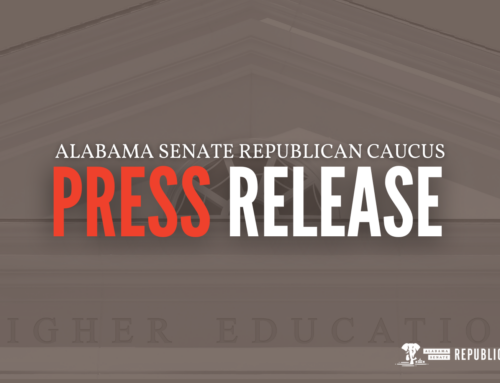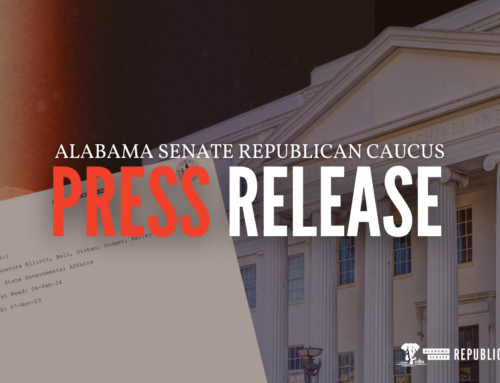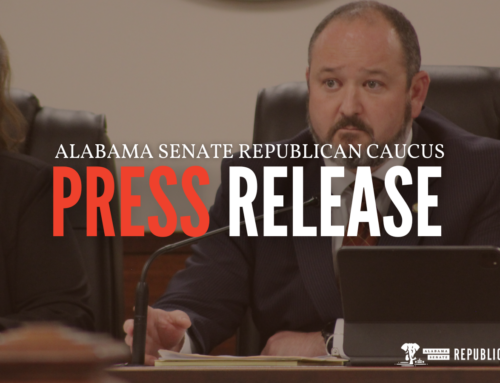MONTGOMERY, Ala. – Today, the Alabama Senate approved an $8.8 billion education trust fund including a $2.8 billion surplus. This allocation promotes supporting school programs, increasing pay for educators, and investing in the Educational Opportunities Reserve Fund to manage excess revenue.
“The Educational Opportunities Reserve Fund is essentially a savings account that will be initially funded with $500 million and can only be accessed during economic downtimes,” states Senator Arthur Orr, Finance and Taxation Education Committee Chairman. “With the excess we have now, we must be strategic to prepare for a future time when that may not be the case.”
The bill states the limited purposes for accessing the reserve funds as “to offset a reduction in estimated revenues of at least 2 percent to the Education Trust Fund for the current fiscal year as certified by the Director of Finance and the Legislative Fiscal Officer; to provide funding for unanticipated obligations; and for start-up or transitional support for initiatives that provide access to enhanced educational opportunities to all public K-12 or higher education students in the state, or both.”
“The Alabama Senate is committed to investing in our state’s education system and planning ahead for the years to come,” states Senate Majority Leader Clay Scofield. “With this increased budget allocation, we are aiming to provide for and protect Alabama’s children and their education while we have the excess funds to do so.”
“The passage of this record budget and its additional supporting legislation was a culmination of bipartisan effort and work that began nearly six months ago,” stated Senate President Pro Tempore Greg Reed. “The legislature is keenly aware that these excess funds are temporary, so it was our job to take conservative measures that were in the best interest of all Alabamians and safeguard itself for years to come. During this process it has been our mission to invest wisely, cut taxes, return money to taxpayers, and put money back in our coffers and I believe that we delivered a methodical and well-thought-out product.”
The roughly $8.8 billion budget provides $5.9 billion to K-12 learning, $2.4 billion to 2- and 4-year higher education, and $195 million to early childhood education. The supplemental budget also includes $40 million for school safety grants, and $20 million to fund some classroom instructional support materials for teachers ahead of the fiscal year in October.
For more information or questions on this legislation, please contact Hope Brasell, hope.brasell@alsenate.gov.




